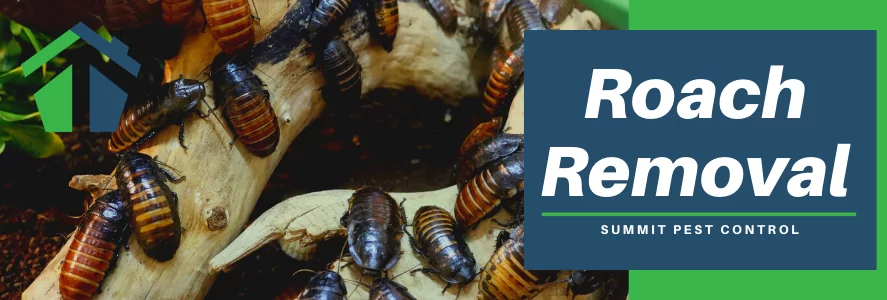Exploring Various Parasite Control Methods to Attain Long-Term Success in Handling and Protecting Against Infestations in Suburb
Reliable pest control in household areas demands a multifaceted strategy that stabilizes instant results with long-term sustainability. What might these developments entail, and just how can they change our understanding of bug control?
Understanding Parasite Control Techniques
Although insects have existed along with human beings for centuries, the methods employed to regulate them have actually advanced dramatically with time. Comprehending these methods is critical for effectively taking care of and stopping problems in suburbs. Parasite control methods can be generally classified right into three key strategies: cultural, mechanical, and chemical.
Cultural methods concentrate on modifying the environment to minimize bug attraction and reproduction. This consists of appropriate sanitation, plant rotation, and habitat adjustment, which can significantly reduce pest populaces. Mechanical control includes physical obstacles and catches to handle pests directly, such as screens, vacuums, and sticky traps. This method is frequently favored for its safe nature and prompt results.
Chemical control remains one of the most extensively utilized techniques, including the application of pesticides to eliminate insects. Integrated Parasite Monitoring (IPM) combines these techniques to produce an all natural technique, promoting lasting parasite avoidance and minimal damage to useful microorganisms.
Eco-Friendly Insect Control Solutions
How can homeowners successfully take care of insect troubles while decreasing their environmental influence? Eco-friendly insect control solutions offer a sustainable choice to standard methods, focusing on the wellness of both citizens and the bordering ecosystem. These options usually use all-natural components and strategies that interfere with pest habits without introducing unsafe chemicals right into the setting.
One efficient strategy is using useful pests, such as ladybugs and lacewings, which exploit typical insects like aphids and termites. Furthermore, diatomaceous earth, an all-natural powder made from fossilized algae, can be sprayed in locations where pests prevail, functioning as a desiccant that damages pests while remaining risk-free for humans and pets.
Additionally, carrying out preventative steps is critical. roach control near me. Property owners can make certain correct hygiene by securing access factors, maintaining clean home, and handling waste properly. Growing pest-repellent natural herbs, such as mint and basil, can also discourage undesirable visitors
Ultimately, environment-friendly parasite control remedies equip home owners to attend to infestations sensibly, fostering a much safer living environment while advertising environmental balance. By welcoming these approaches, individuals can add to a much healthier world while effectively handling pest-related problems.
Chemical Insect Control Options
While environment-friendly options are significantly popular, there are scenarios where chemical bug control choices may be needed for reliable monitoring of severe problems. Chemical controls, consisting of insecticides, fungicides, and herbicides, are frequently used to swiftly minimize insect populations and reduce damage to homes and gardens.
These items can be identified right into two you could look here primary categories: artificial chemicals and all-natural chemicals. Artificial chemicals, such as pyrethroids and neonicotinoids, are engineered to target details pests, giving quick knockdown effects. Alternatively, all-natural chemicals, stemmed from plant or mineral sources, might offer a more eco pleasant alternative while still providing efficient outcomes.
Prior to using chemical pest control, it is critical to perform a complete assessment of the infestation and determine the details insect involved. This makes certain that the picked chemical is both efficient and ideal. Furthermore, homeowners should follow safety and security guidelines, including appropriate application methods and individual protective tools, to decrease health and wellness risks and ecological impact.
Integrated Parasite Management Techniques

Biological control includes making use of natural predators or bloodsuckers to manage insect populations. As an example, introducing ladybugs can aid control aphid infestations. Social practices, such as crop turning, sanitation, and habitat alteration, goal to make environments much less for pest survival and reproduction. Physical controls, like traps or obstacles, can avoid bugs from going into homes or destructive crops.
Tracking and assessment are vital parts of IPM, enabling timely treatments based on pest populace thresholds. By prioritizing precautionary procedures and using a mix of techniques, IPM not only addresses current invasions however likewise cultivates lasting pest management remedies that secure both human wellness and the atmosphere. This extensive method is vital for lasting bug control in domestic areas.
Emerging Technologies in Bug Control
The arrival of emerging modern technologies in insect control is changing the method we handle pest populaces, supplying innovative options that enhance efficiency and performance. Breakthroughs in precision farming, for circumstances, use data analytics and sensor modern technologies to check pest task and ecological problems, enabling targeted interventions that decrease pesticide usage.
Additionally, drones furnished with imaging innovation are being employed to evaluate big areas for invasions, providing real-time data that help in timely decision-making. Moreover, biotechnology is playing a crucial duty, with the growth of genetically modified microorganisms (GMOs) designed to lower pest populations while preserving valuable types.

Lastly, wise traps and keeping an find more info eye on devices furnished with IoT capacities make it possible for property owners and insect control professionals to receive instantaneous notifies about insect activity, promoting timely activity. Jointly, these arising modern technologies not only boost pest monitoring end results but also contribute to environmental sustainability by reducing dependence on traditional chemical therapies.

Verdict
In verdict, effective insect control demands a multifaceted technique that includes social, mechanical, and chemical methods. The integration of these approaches is crucial for achieving lasting success in insect administration.